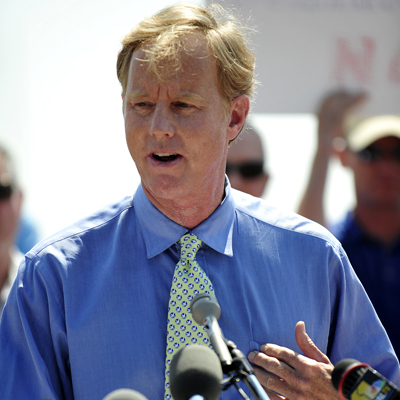18
Experts Question Spill Preparedness in Chesapeake
As Congress hears testimony about the handling of the Gulf of Mexico spill, scientists and environmentalists question how prepared the government is to respond if a ship or barge were to leak oil into the Chesapeake Bay.
Experts say a quick-fire response is needed to stop oil from spreading in the shallow bay and reaching the shores.
“There is no functioning [emergency response] system on the Bay in the terms of what we call operational,” said William C. Boicourt, an expert in physical oceanographic processes at the University of Maryland Center for Environmental Science at Horn Point. He said the center has been working on an early warning system for wind and oil patterns, but such a system is at least two years away.
 “We don’t know of any detailed plans and response scenarios that are in place that have been practiced that are ready to go at a moment’s notice,” said William C. Baker, president of the Chesapeake Bay Foundation. “Clearly the states and the Coast Guard ought to do more planning.”
“We don’t know of any detailed plans and response scenarios that are in place that have been practiced that are ready to go at a moment’s notice,” said William C. Baker, president of the Chesapeake Bay Foundation. “Clearly the states and the Coast Guard ought to do more planning.”
Coast Guard Lt. Cmdr. Michael J. DaPonte said there are area contingency plans – collective efforts by federal, state and local agencies and industry representatives — to respond to water-related disasters on the bay.
But primary responsibility for cleaning any oil spill is the party responsible for the spill and the contractors it hires to do that work, DaPonte said.
–by Sharon Behn
This is an excerpt from a longer story; read full story from Behn in The Baltimore Sun.
About Us
Our Stories
- Md. Officials May Temporarily Lift Ban on Female Crab Harvest in Bay
- Scientists, Environmentalists Question Readiness of Chesapeake Bay Disaster Plans
- Inner Harbor Water: Unsafe Bacteria Levels, Test Shows
- Swimmers’ Impressions of Bay Not Always in Sync With Its Health, Scientists Say
- Chesapeake Bay Swim Attracts Hundreds in Balmy Conditions, But Course Includes ‘Dead Zone’















